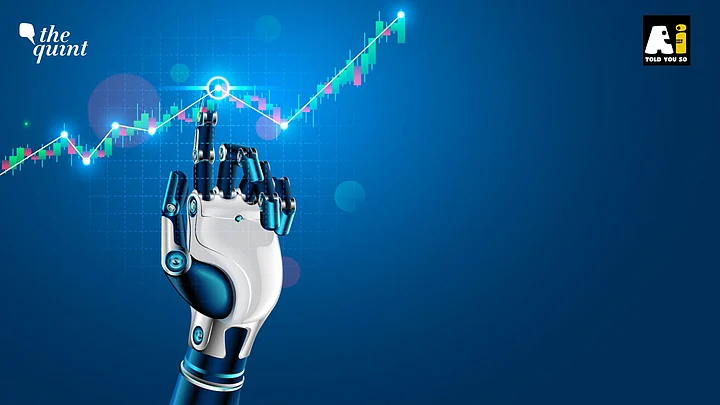Recently, the Ministry of Electronics and Information Technology (MeitY) released “India AI 2023.”
IndiaAI's vision embodies a mission-centric approach to propel India’s digital economy and governance through AI. By contributing $967 billion to the Indian economy by 2035 and driving a $450-500 billion increase in India’s GDP by 2025, AI is poised to play a significant role in achieving the country’s $5 trillion GDP target.
With a focus on fostering innovation, generating employment, and supporting growth, the Indian government has proactively pursued “AI for All.” Initiatives by the MeitY, such as the ‘National Program on AI,’ lay a solid foundation. India’s exceptional position in AI rankings and indexes underscores its growing influence in the global AI landscape.
To achieve these goals, IndiaAI works on pillars including Centers of Excellence, data platforms, institutional capacity, AI startups, future skills, AI compute infrastructure, and AI chipsets. In this context, Decentralised Finance plays a major role in addressing AI to the extent of mitigating its risk with its usage
This article is a part of 'AI Told You So', a special series by The Quint that explores how Artificial Intelligence is changing our present and how it stands to shape our future. Click here to view the full collection of stories in the series.
The Convergence of DeFi and AI
DeFi (Decentralized Finance) represents a paradigm shift in how financial services are conceived and accessed. Built on the foundation of blockchain technology, DeFi platforms enable open, permissionless, and trustless access to a wide array of financial services, including lending, borrowing, trading, and more. Instead of relying on centralised intermediaries such as banks and financial institutions, users can engage in financial transactions directly on these blockchain-based platforms.
AI is advancing and becoming increasingly integral to the financial sector. Machine learning algorithms can analyse market trends, manage portfolios, automate trading, and even provide customer support. The possibilities seem limitless, but with great power comes great responsibility.
One of the key challenges posed by AI in finance is the potential for algorithmic bias. Machine learning models, if not properly trained and monitored, can inadvertently perpetuate biases present in historical data. This bias can lead to discriminatory lending practices or skewed investment decisions, resulting in economic and social inequalities.
Moreover, AI algorithms can sometimes make unexpected and unexplainable decisions, which can be a significant concern in financial operations where transparency is paramount. Another risk is the potential for market crashes or disruptions caused by automated trading algorithms. Flash crashes and extreme volatility can occur when algorithms react to market events in unpredictable ways, and these events can have far-reaching consequences.
The convergence of DeFi and AI represents a transformative force in the financial industry. This combination offers streamlined automation and enhanced efficiency, aligning DeFi’s programmable nature with AI’s automation capabilities, reducing the reliance on intermediaries, and minimising human errors in processes like lending, borrowing, and trading. AI’s advanced data analytics, within the decentralised DeFi structure, contributes to improved risk assessment, aiding lenders in making informed decisions about borrowers’ creditworthiness.
Moreover, DeFi’s reliance on blockchain ensures transparency, as every transaction is immutably recorded, addressing concerns related to algorithmic bias and the “black box” problem.
AI also strengthens security within DeFi through proactive threat detection and anomaly detection systems, identifying vulnerabilities and safeguarding user’s assets. The fusion of AI and DeFi enables the provision of personalised financial products, enhancing user experiences and fuelling ongoing innovation within the DeFi space.
Mitigating AI risks with DeFi
The reduced centralised risk in DeFi is noteworthy as it distributes decision-making across the blockchain, lessening the likelihood of catastrophic errors typically associated with centralised AI systems. Decentralisation inherently enhances the financial system’s resilience, reducing its vulnerability to single points of failure. Additionally, the immutable nature of blockchain technology ensures enhanced accountability within DeFi. With every transaction and smart contract operation recorded transparently on the blockchain, there exists a clear and indisputable record of AI-driven decisions.
This accountability serves as a critical mechanism for addressing issues such as algorithmic bias or unanticipated AI behaviour, bolstering trust and transparency. Moreover, the open and collaborative nature of DeFi projects presents a unique opportunity for global collaboration and innovation.
By embracing open-source principles, DeFi platforms encourage developers and researchers worldwide to contribute to these projects, fostering the development of more robust AI algorithms and financial models, and further strengthening the ecosystem.
AI holds the potential to bring about a transformative shift within the DeFi ecosystem in several key areas. Predictive analytics can leverage AI algorithms to scrutinise vast financial datasets, enabling decentralised exchanges, lending platforms, and other DeFi applications to make data-driven predictions about future market trends. Risk management becomes more robust as AI continuously monitors the DeFi landscape, swiftly identifying potential risks like flash loan attacks, rug pulls, and market manipulation, allowing proactive risk mitigation.
Automated trading benefits from AI-driven algorithms, streamlining trading processes and enhancing decision-making for traders while boosting overall trading efficiency. In terms of compliance, AI can automate the compliance checks necessary for adherence to regulations like anti-money laundering (AML) and know-your-customer (KYC), significantly improving accuracy and efficiency.
Furthermore, AI’s role in portfolio management is pivotal, providing tailored investment recommendations and automating portfolio management for DeFi users to optimize returns and minimize risks, ensuring a superior user experience.
Conclusively DeFi can potentially help mitigate a few risks associated with AI by promoting transparency and decentralisation in financial operations. Smart contracts on DeFi platforms can automate and enforce predefined rules, reducing the likelihood of human errors or biases in financial decision-making.
Additionally, DeFi’s open and permissionless nature allows for increased auditability and oversight of financial transactions, which can enhance accountability and reduce fraudulent activities. However, it is important to note that DeFi itself faces its own set of risks, and careful integration with AI systems is essential to fully harness its risk-mitigating potential.
(Sanhita Chauriha is with Vidhi Centre for Legal Policy. This is an opinion piece. The views expressed above are the author’s own. The Quint neither endorses nor is responsible for the same.)
